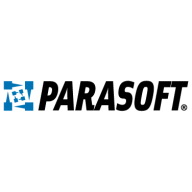

Parasoft Development Testing Platform and OpenText Software Delivery Management compete in the testing and software delivery management domain. OpenText appears to have an edge due to its comprehensive features, making it more suitable for complex environments.
Features: Parasoft emphasizes automated testing, compliance management, and test impact analysis, supporting software quality improvement. OpenText delivers end-to-end visibility, project tracking, and seamless enterprise tool integration, offering robust support for complex systems.
Room for Improvement: Parasoft could enhance integration with more enterprise tools, broaden deployment flexibility, and expand its feature set for complex environments. OpenText benefits from shortening deployment time, reducing resource requirements, and streamlining its complexity level for smaller setups.
Ease of Deployment and Customer Service: Parasoft offers straightforward deployment with detailed documentation and efficient customer service. OpenText, while providing flexible deployment, requires more resources and longer setup time, yet supports large team collaboration once implemented.
Pricing and ROI: Parasoft is favored for its competitive pricing and quick ROI achieved through lower upfront costs and efficient implementation. OpenText requires a higher initial investment but promises significant long-term ROI due to tools optimizing project efficiency and aligning with business goals.
The ability to generate audit evidence with a single click saves ten days of work for ten people, enabling them to focus on other tasks.
We can expand the number of servers and resources as required.
While it aims to be as flexible as possible for a large enterprise application, sometimes there are limitations that may not meet specific organizational needs.
OpenText ALM Octane is an expensive product.
Its ability to generate audit evidence with a single click is a significant advantage, as it saves considerable time and money compared to manual processes.


OpenText Software Delivery Management provides application lifecycle management with Agile and Waterfall support. It features intuitive interfaces, CI/CD integration, automated testing, and robust reporting, improving project management efficiency and usability.
Designed to enhance teams' productivity and streamline processes, OpenText Software Delivery Management integrates seamlessly with Agile methodologies. Its comprehensive backlog and requirements management, user stories, and test management make it a complete tool for managing the development lifecycle. The platform aligns with DevOps, providing traceability and extensive customization options. Traceability from requirements to deployments is enhanced, making it easier for teams to track progress. It offers integration with popular tools like Jenkins and JIRA, ensuring a unified approach to continuous delivery and testing management.
What key features does OpenText Software Delivery Management include?OpenText Software Delivery Management is implemented across technology-focused industries, supporting Agile processes like requirements management and defect tracking. Organizations use it to standardize development workflows and optimize continuous delivery integration, choosing it for its ability to support both Agile and Waterfall methodologies within application lifecycle management.
Parasoft DTP aggregates the results from across testing practices, providing intelligent and continuous monitoring of the testing outcomes for greater visibility into what is working — and what isn’t. Includes:
- Comprehensive Reports & Dashboards
- Preconfigured compliance reporting
- Customized Advanced Analytics
- Interactive Navigation of Results
- Traceability
We monitor all Application Lifecycle Management (ALM) Suites reviews to prevent fraudulent reviews and keep review quality high. We do not post reviews by company employees or direct competitors. We validate each review for authenticity via cross-reference with LinkedIn, and personal follow-up with the reviewer when necessary.